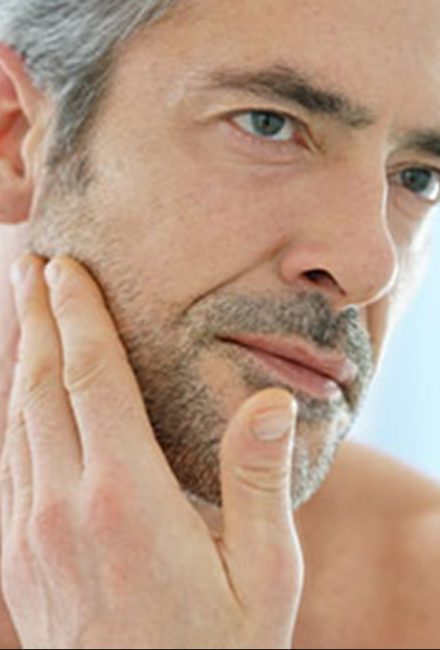Is it possible that men go through their own form of menopause? Well it certainly can’t compare to the hormones-plummeting-in-a -short period-of -time that women face, but there are some challenging changes men deal with.
Male menopause has to do with the gradual loss of testosterone, otherwise known as andropause or hypogonadism.
Levels of testosterone vary but in general, older men tend to have less than younger men do. In fact, testosterone gradually declines about 1% a year after age 30. While women lose their ability to produce hormones altogether, the testes do not run out of the substance it needs to make testosterone in men. A healthy male may be able to make sperm well into his eighties or longer.
What does losing testosterone mean for men?
Testosterone deficiency (sometimes called “Low T”) can manifest problems for men such as a decrease in sex drive, lack of energy, decrease in strength or endurance, depression, fatigue, insomnia, increased body fat, difficulty concentrating or remembering things and yes, sometimes even the odd hot flash.
A simple blood test can determine whether treatment is necessary.
The Endocrine Society published guidelines for testosterone replacement therapy in men who do not have testicular or pituitary disease. These experts recommend testosterone therapy only for men with low serum testosterone concentrations who have symptoms of androgen deficiency.
Experts also recommend that the goal is to reach a testosterone level that is lower than that for younger men to lessen the potential risk of developing any testosterone-dependent diseases such as prostate cancer.
In studies, testosterone replacement in older men for up to 3 years showed increases in muscle mass, a sense of well-being, libido, bone mineral density and a decrease in body fat.
The one thing you don’t want to do is bypass a doctor’s assessment and start taking some testosterone you got off the internet because you think you have a few symptoms.
Hormone replacement therapy for both men and women can have serious side effects and must be properly tested for and administered.
Eating healthy, keeping up exercise to help maintain strength, energy and muscle mass and limiting alcohol can help with some of the symptoms. However, not even herbal supplements can deal with the issues associated with low testosterone levels.
If you wonder whether you are suffering from male menopause (andropause), and you’d like to find out whether you are a candidate for HRT for men (“Low T” treatment), Contact a doctor that has a special interest and specific training in the area of Hormone Replacement Therapy and get a personalized consultation that includes:
- Medical history review to look for risk of heart attack, stroke, diabetes and prostate cancer
- Symptom review to correlate with estrogen, progesterone or testosterone excess or deficiency
- Physical exam to rule out contraindications (reasons NOT to use hormones)
- Investigations to check for risk of side effects
- Blood, saliva or urine tests to quantify hormone levels
- Discussion of pro and cons of various hormone regimes


